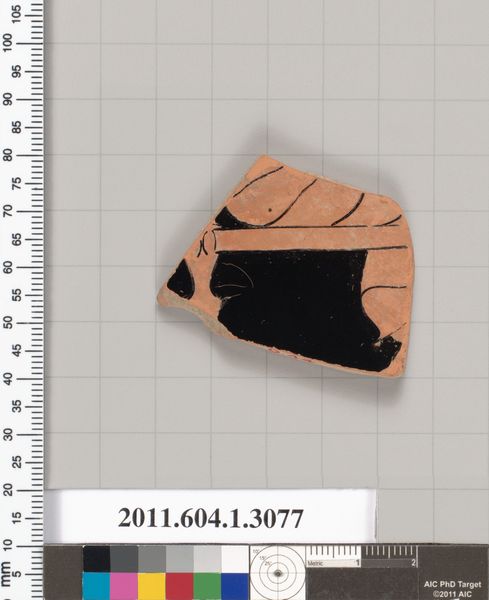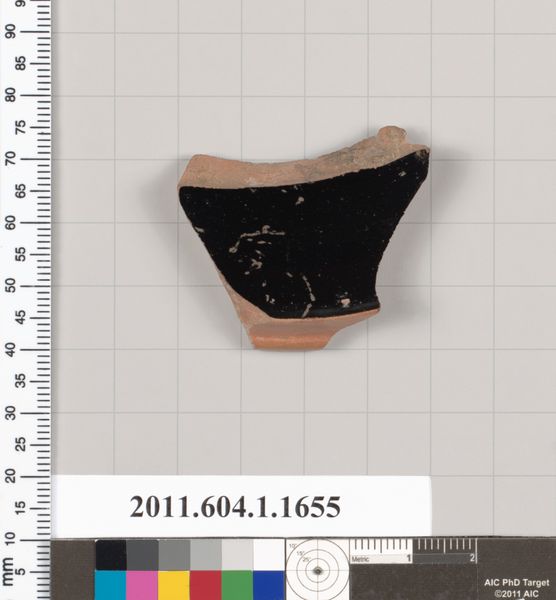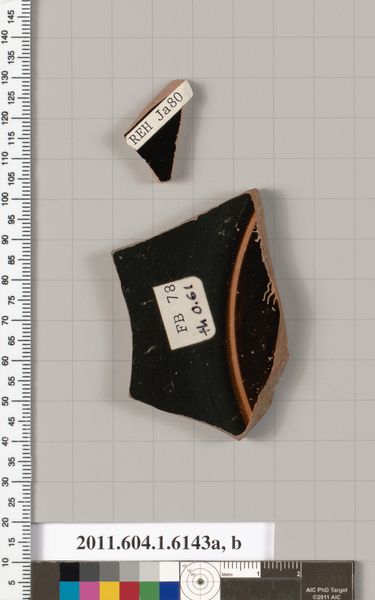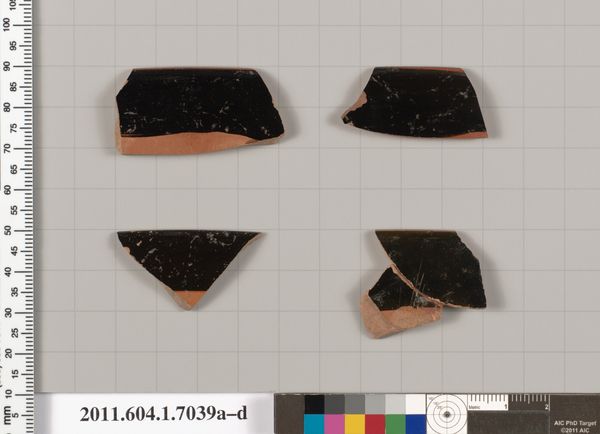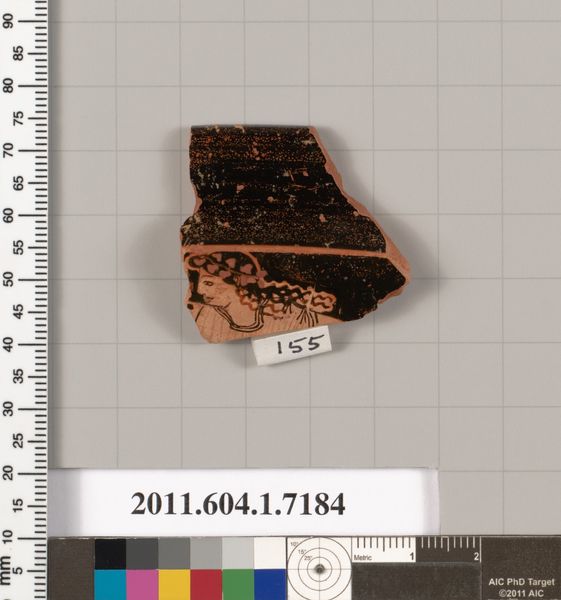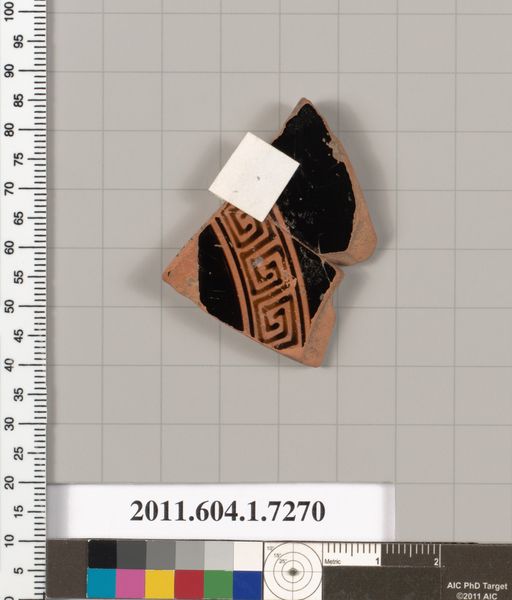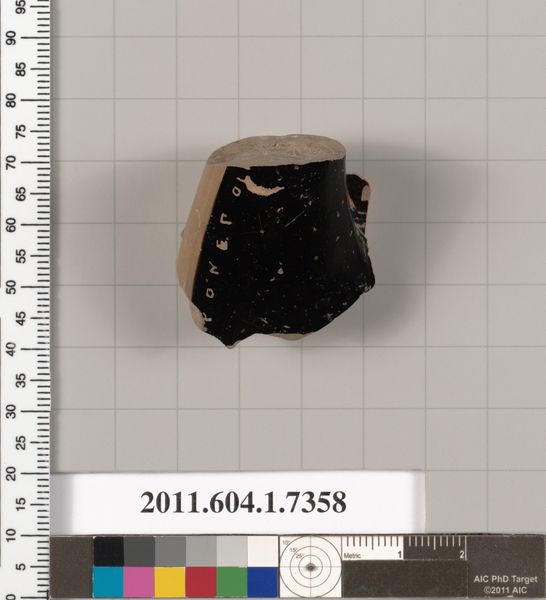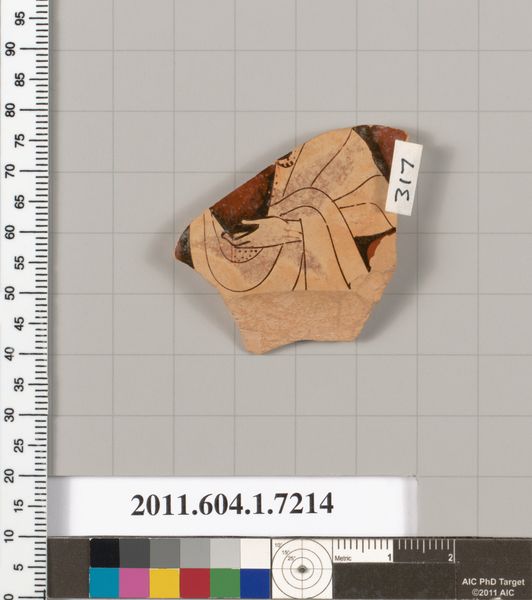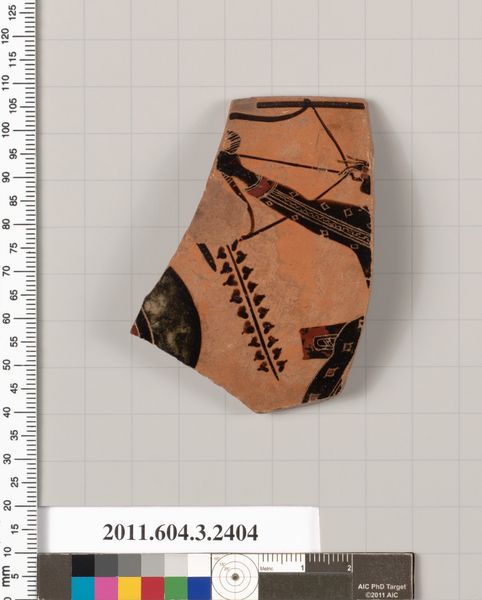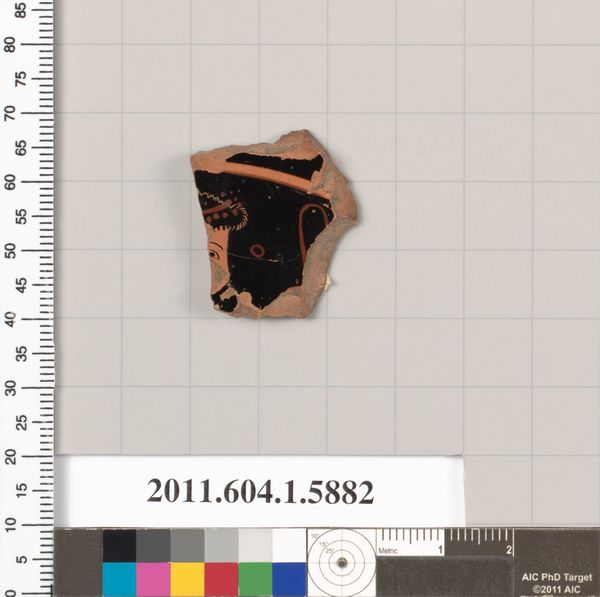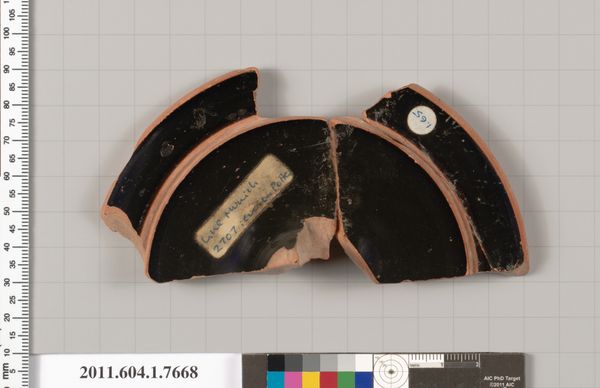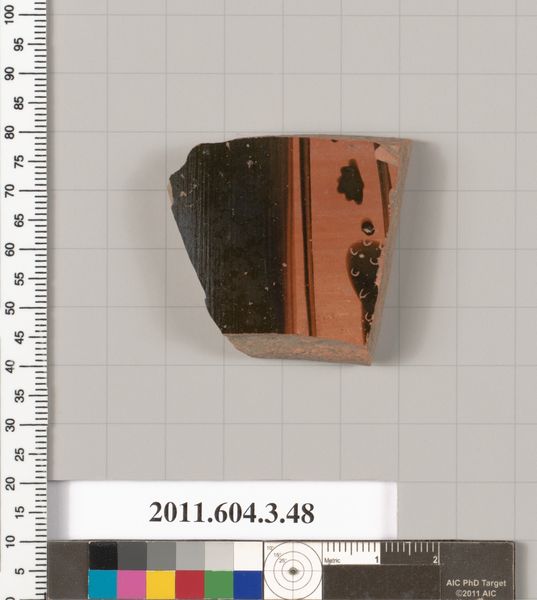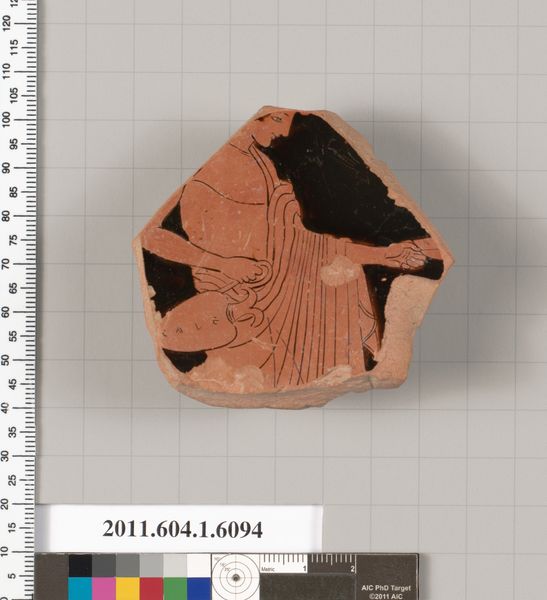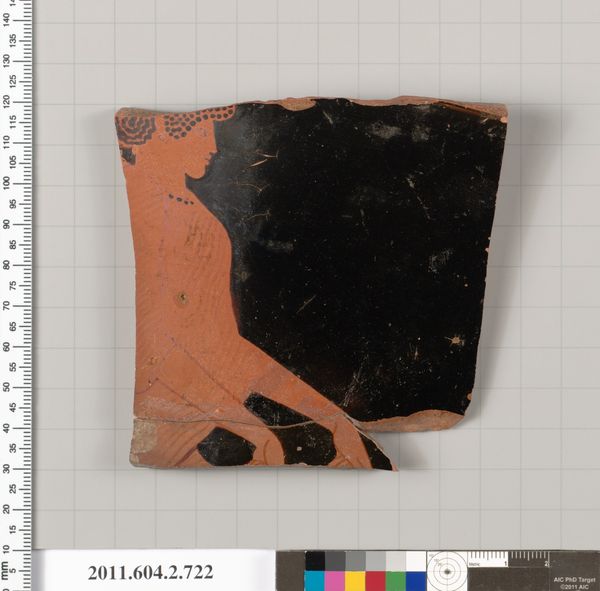
drawing, ceramic
#
drawing
#
greek-and-roman-art
#
ceramic
#
vase
#
figuration
#
roman-art
#
ancient-mediterranean
Copyright: Public Domain
Editor: This is a fragment from a terracotta kylix, or drinking cup, created around 530 BC, now residing at the Metropolitan Museum of Art. It is by Makron. All that survives is a small arc, thick with black slip save for a meander pattern around the top edge. There's something so striking about such a tiny shard holding so much history, so much silent beauty. What do you see in this little fragment? Curator: Well, isn't it marvelous how such a small, broken thing can still sing to us across millennia? For me, this isn’t just a broken pot. It is an artifact imbued with ritual, with the communal spirit of a symposium. Can you imagine it, filled with wine, circulating in a dimly lit room, amidst conversation and perhaps song? This fragment carries the ghost of laughter, the weight of human interaction. Do you get that sense, too, of lives interwoven with this object? Editor: I do, now that you mention it. It feels less like just an old broken vase and more like a tiny porthole into a different time. I mostly saw…black. But I appreciate how its survival connects us, even distantly, to something alive in its time. Curator: And that black! It wasn't merely a color choice. Think of the precise skill needed to apply that slip, to control the kiln firing to achieve that lustrous depth. I bet the craftman took immense pride in getting it just right. Maybe in some weird way, we share that pride, too. Don't you think there’s something magical about art’s power to evoke these connections? Editor: Definitely! I was missing the human connection piece, and you totally brought it home for me. Now I'm picturing ancient parties every time I look at it. Curator: Me too! I’ll never look at another black-figure fragment the same way. These silent pieces of our past speak if we listen closely enough, with heart and imagination.
Comments
No comments
Be the first to comment and join the conversation on the ultimate creative platform.
